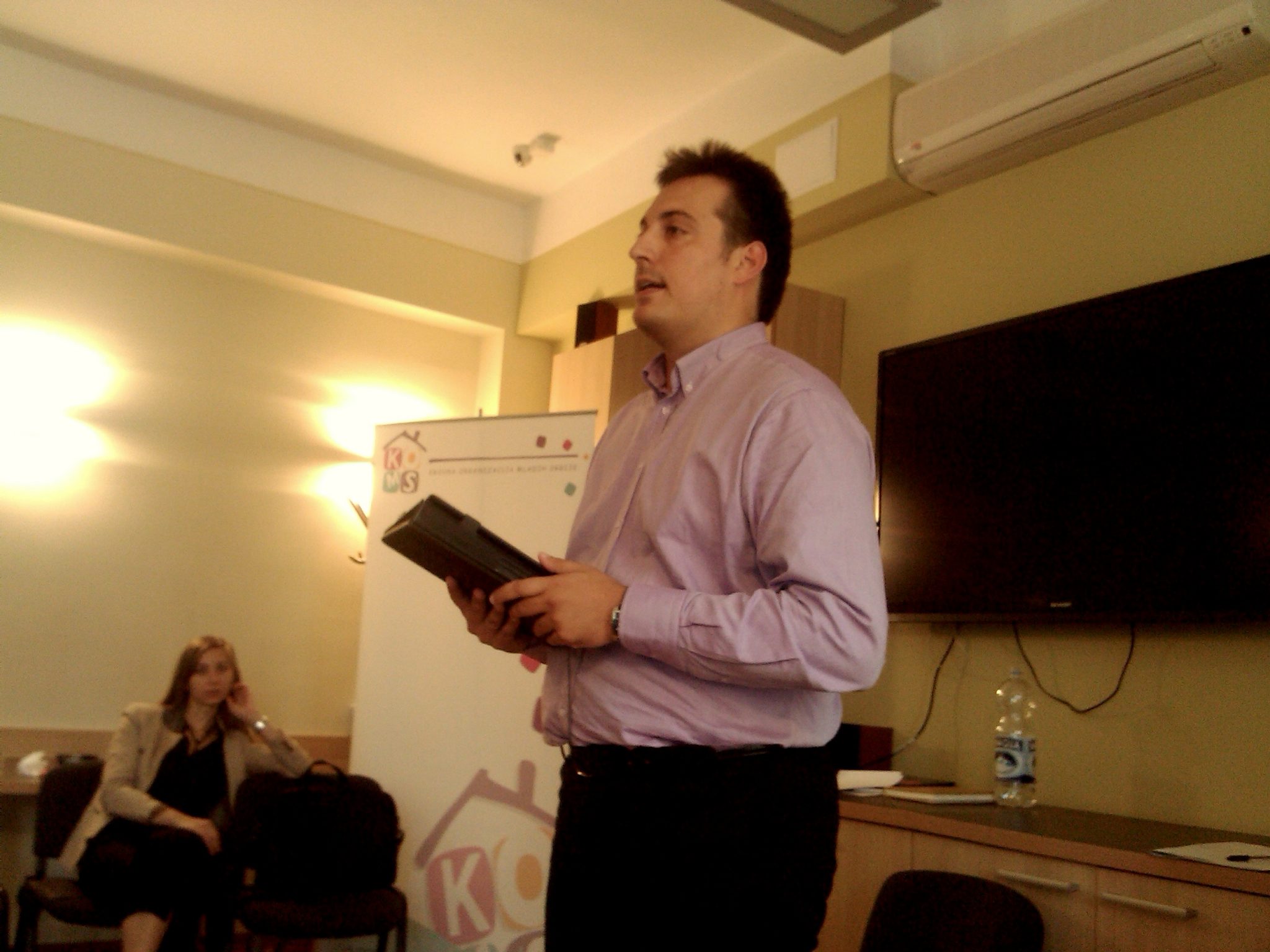Earlier this week, BFPE’s program coordinator Marko Savkovic took part in a seminar organized by the Umbrella Organization of Youth in Serbia (KOMS) – “Serbian Chairmanship of OSCE in 2015 and the Role of Youth”, where he delivered a presentation entitled “Problems of Youth Participation in Public Policies”.
Marko’s arguments were preceded by a very informative presentation by colleague Maja Bjeloš from the Belgrade Centre for Security Policy (BCSP), who in an example of a specific – security and defense policy – showed the obstacles and opportunities for greater involvement of young people. Earlier, the seminar participants – students and employees of civil society organizations active throughout Serbia – discussed with representatives of the Ministry of Foreign Affairs, OSCE Mission and the Ministry of Youth and Sports what entails Serbia’s chairmanship and where do opportunities lie for greater involvement of young people. In continuation of the project, each of the seminar participants is expected to implement a special workshop.
Marko believes that there are three “doors” to “enter” any public policy: to volunteer in one of the established civil society organizations in Serbia; to work in the media and in the end, to get involved in politics. Marko said:
… Because of their complexity, in order to track public policy one needs knowledge (…), you may be an actor of public policy without research background, however, your credibility will be constantly questioned.
In the discussion, participants were most interested in the experiences that BFPE has gained in leading various programs of political education, that is, the experience of working with political parties. It was, of course, widely discussed why young people in Serbia “fear” from entering politics. Marko pointed out how there should be…
no detest of politics! Rather a healthy distance, coupled with a constructive relationship. Young, ambitious politicians can find a source of inspiration in quality work of civil society organizations, as well as allies – no matter how controversial it sounds today.
The talk continued around inner-party dynamics. More participants cited examples from their environment, where good ideas only brought problems to those who initiated them. Marko was posed the question of whether – if ideas reach a dead end – one person should move to another party, and whether it makes sense to judge such an act a priori.
Finally, each of the three aforementioned ways of entering the sphere of public policy was discussed in greater detail. Key obstacles? Money (the lack of sustainability) and potential loss of integrity.













